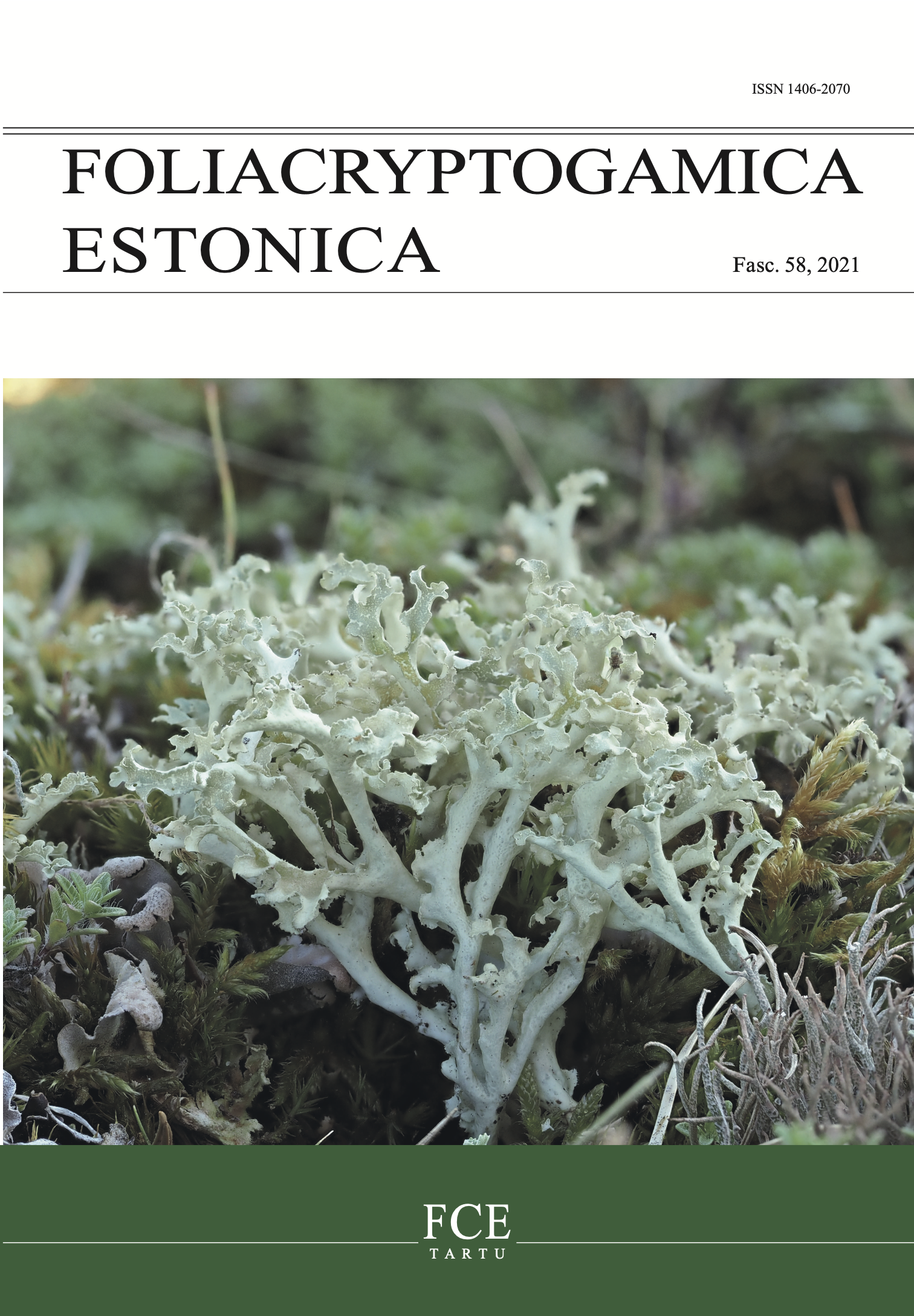Lobaria pulmonaria (L.) Hoffm. in the southwestern Baltic – Kattegat area
DOI:
https://doi.org/10.12697/fce.2021.58.19Keywords:
historical and recent distribution, habitats, ecology, viabilityAbstract
The past and present distribution of Lobaria pulmonaria in Denmark, northern Germany, northwestern Poland and nemoral parts of Skåne, Blekinge, southwesternmost Småland and southern Öland (Sweden) has been studied. Of 124 localities visited between 2015 and 2018, L. pulmonaria was confirmed at 64 sites, at each of which its habitat ecology and viability were investigated. It is almost extinct in Schleswig-Holstein, in southern Jutland, on the Danish Islands, in southwestern Skåne, in Mecklenburg-Vorpommern and in the western part of Pomerania. It has disappeared almost completely from areas where mesophytic forests form the potential natural vegetation. The commonest habitats for L. pulmonaria are species-poor acidic beech and species-poor oak forests, and the commonest substrates are trunks of beech, followed by oak. L. pulmonaria specimens on about two thirds of the colonized trees were in a healthy condition. The situation is worst in Schleswig-Holstein and on the Danish Islands, but best in Blekinge and central and northern Jutland. Recent distribution seems to be influenced by both anthropogenic (e.g. air pollution by sulphur dioxide and nitrogen and forestry practices) and natural factors (precipitation, temperature, air humidity), as well as unnatural climatic factors (global warming).


